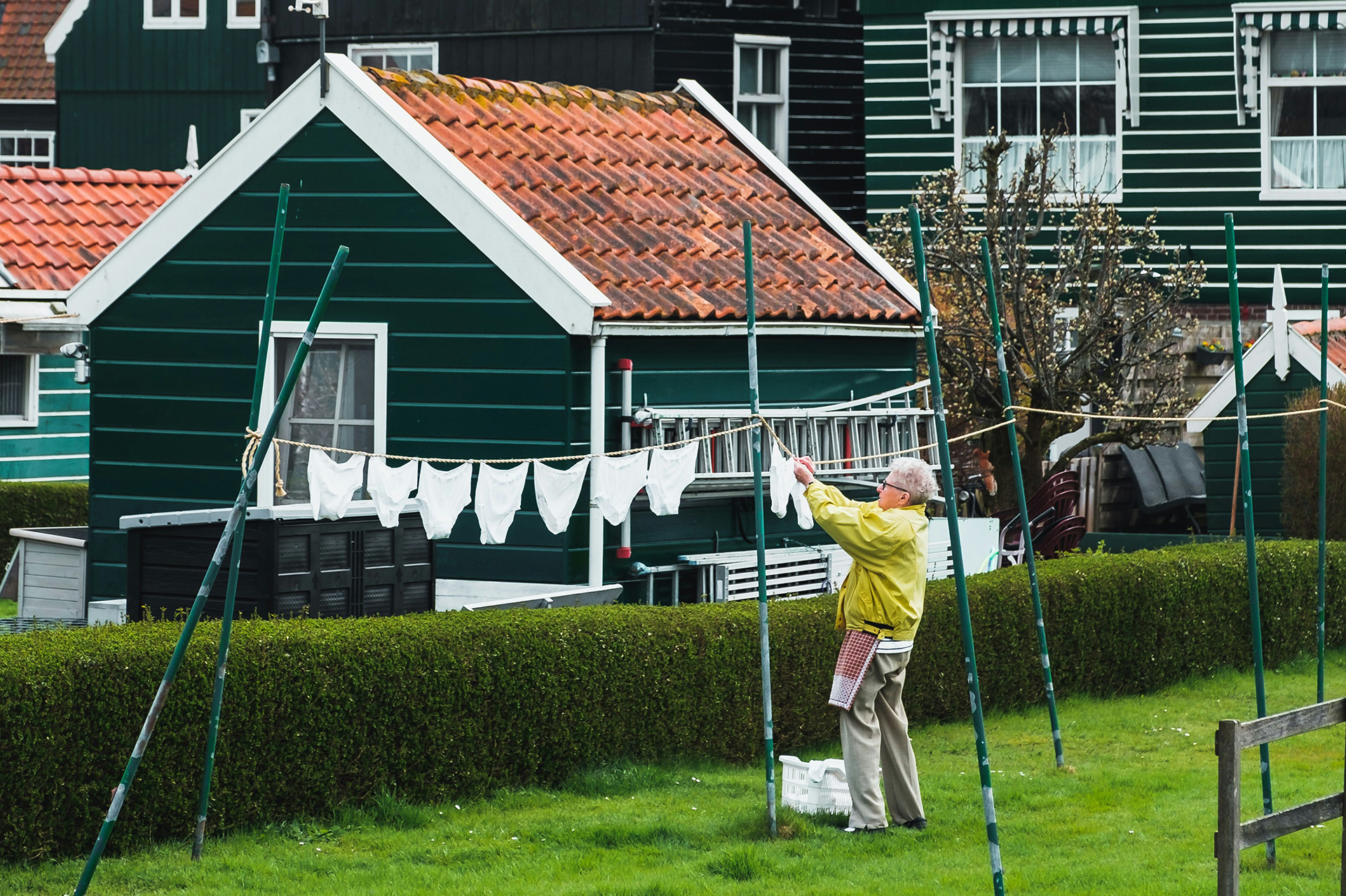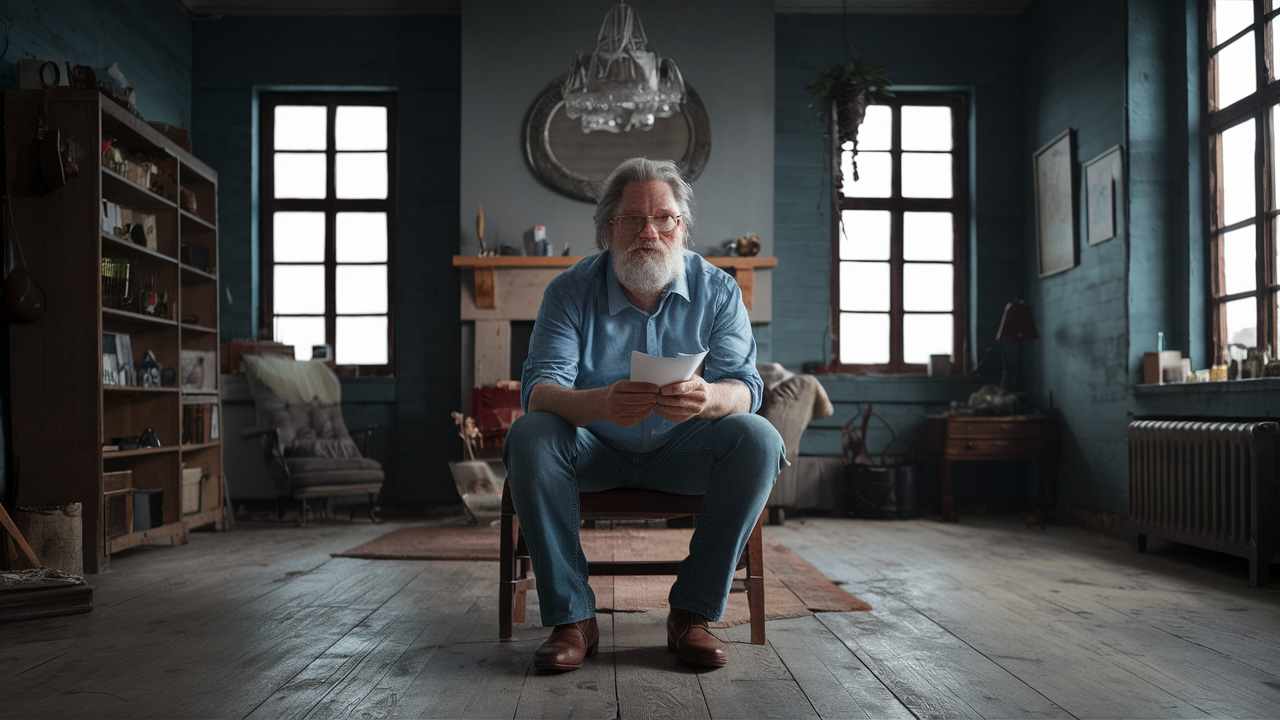When discussing the housing crisis in the Netherlands, older people are a favourite topic. They constitute a growing share of the population, they live in unsuitable houses, they are lonely... When Gijs van Duren was looking for a topic for his MSc thesis, something struck him. "People often say that elderly people should relocate, but their opinion is rarely sought." So he challenged himself to try something new for the conclusion of his studies: social research.
As a starting point, Gijs used data from Woononderzoek Nederland. This huge survey is sent out to tens of thousands of participants every three years. Gijs analysed the data from the age group 55-74, the so-called 'young elderly' (YE), and summarised their housing wishes. He immediately ran into the fact that 70% of respondents did not want to move within five years. "I had expected that many YE were stuck in unsuitable houses after their children left. And indeed, the data shows that they usually have more rooms than necessary. Still, they don't want to leave!"
Would you like to move within 5 years? Over 70% of young elderly say no.
Gijs van Duren
Where does this aversion come from? Gijs needed more insight. An advertisement in the newsletter of the Home Owners Association garnered 120 responses, which led to nine interviews. "The first thing I heard each time was: there is simply not enough on offer." Not a strange complaint during a housing crisis, but further questioning revealed that many YE were in fact hardly looking. And even if they did search: "They have very specific requirements, because satisfaction with their current home is very high." How do we get this reluctant target group enthusiastic about moving anyway?
"The ideal would be a kind of old-timer's courtyard"
The most important step is to cater to their wishes. Gijs: "55- to 65-year-olds often want spacious houses in rural areas. In contrast, 65- to 75-year-olds prefer a single-floor flat in the city, close to amenities." Local construction is crucial, as many YE are attached to their surroundings. For instance, one couple said about moving: "We don’t want to leave this place anymore, [so] across from here is super." Some would like to live collaboratively with other older people, while others prefer to be part of a mixed neighbourhood. A man of about 60 says: "A courtyard with older people seems nice, but then you only talk about the Rolling Stones. If you stay in touch with young people, you stay a bit younger yourself."
"Will those new housing units suit my needs?"
Building more suitable housing is an obvious solution, but after that we also need to help YE by providing information. Gijs: "With new construction, YE often hope to find something suitable. But if they don't hear specifications, they won't start planning or buying." He thinks municipalities can anticipate this need by organising meetings or distributing flyers with information. Gijs: "Or hire dedicated 'senior estate agents’ to take the initiative in approaching YE who live unsuitably."
A 'senior estate agent' could help with searching for a new home and the logistics around moving. (source: Pexels)
"A company that says: we take care of everything"
Moving house is a huge task, and even more so for this age group. Gijs recommends lowering that barrier by offering physical and organisational help. Painting and flooring, as well as new contracts for gas and electricity. One 65+ couple sums it up: "We want there to be one small company or one person who takes care of getting rid of all the stuff that's here, talks to the estate agent, schedules, chooses the furniture, and arranges the Ziggo."
"What ruins my mood is an Owners' Association"
Finally, Gijs encountered a surprising objection. In the Netherlands, residents of flats have to deal with an Owners' Association by default, and several YE did not like the idea. Not only because of the contribution fee (woman: "The contribution went from €300 to €1,000 per month in 10 years."), but also especially because a flat block is often majority owned by a housing corporation, which can therefore make all the decisions. A solution could be to divide blocks into smaller associations, so that the YE voice is not lost. Or ensure that YE more often form a majority in their flat block.
Older people usually recognise when their homes are less suitable.
Difficult, but not impossible
With all these demands and wishes, it might seem like we are facing an impossible task. But that is not Gijs' conclusion. "Many YE are open to moving anyway, due to increasing health problems and unsuitable living conditions." A 70+ man illustrates: "I used to do the painting work myself, but it's starting to get a bit tricky to stand on a 7-metre ladder." So with the right mix of housing supply and help, it should be possible to help the older generation and simultaneously unlock their 'little palaces'.
Published: April 2024
More information
Gijs' full final report, 'Facilitating a move for the Young Elderly', can be found in the TU Delft Repository.
The banner is from Unsplash, by Laura Thonne. Image 1 is from Unsplash, by Serhat Beyazkaya. Image 2 is from Pexels, by Antoni Shkraba. Image 3 was generated with AI.




